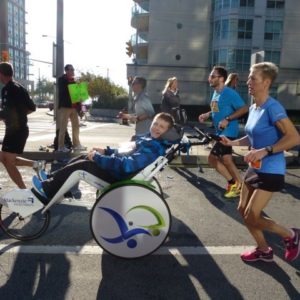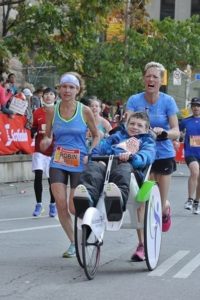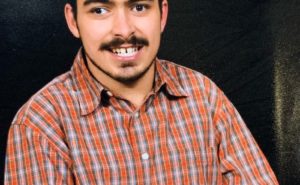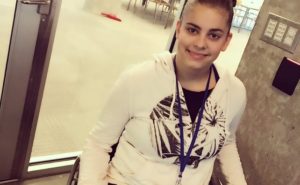By Dan Chalcraft

“The very first words that come to mind are ‘incredibly difficult’,” says Michelle Gentis, when asked to describe her life as the mother of a child with a disability. Her son Josh was born with two neurological disabilities, including cerebral palsy. Michelle explains that one of the challenges for families with a child with a disability is that there is no road map, and no specific instructions about where to go and what to do. “We live in a great country but they don’t know how to access these programs and services,” she says. “There is a lot of complexity with a child who has special needs like Josh. He needs help with dressing, eating, bathing, and getting stuff ready for school and that is just the first 45 minutes of the day.”
Challenges and isolation
The challenges are compounded by the fact that she is a single mom who works full time. Between looking after herself and Josh, she feels like she has to live a double life, and the constant demand on her time is incredible. “I don’t have time to cook a home cooked meal,” she says, what with looking after Josh’s daily needs and his thrice-weekly therapy. She sees a common theme for other parents who are going through the same thing at the rehabilitation pool. “It is lonely having a child with a disability. People don’t understand what you are going through because they aren’t experiencing it.”
Michelle says that she hasn’t watched a television show since Josh was born, and he is now 15 years old. Joshua lives with a condition called “hypomyelination with atrophy of the basal ganglia and cerebellum” (known as H-ABC syndrome). This means he is fully aware of his surroundings but his brain doesn’t communicate properly, leaving him essentially trapped in his own body. He also lives with cerebral palsy which is a neurological life-long condition that affects body movement and muscle coordination. Making things more challenging, Josh is non-verbal and unable to fully communicate and express his needs.
Battling for services
Michelle feels that she is always fighting a battle for proper support and services for her child, including a suitable teacher assistant, proper technology and augmentative communication. “There are 100 kids on the speech therapist’s caseload – how can they help my son?” Michelle asks. She is trying to push these issues and to lobby the government for more support for children with special needs and their families. “The more voices [there are], the more we will be heard.”
Like many children with physical disabilities, Josh wants to feel included with other children. “He used to cry when I pulled him off the tarmac [at school] and away from the other kids. That’s when I started participating in half marathons and marathons,” says Michelle. “Running provides an outlet for me and Josh, as well as a sense of enjoyment. He feels part of the sport and that he is doing something great. He gets to wear his own [identification] bib and he has his own chair.”
Qualifying for the Boston Marathon
Michelle’s first run was the 2008 Scotiabank Half Marathon. Josh had a great time at the event, and running developed into an activity for Josh to participate in and get him involved. Michelle reflects on how Josh’s involvement in the sport challenges the attitudes that people have about disabilities. “In every race we run, everyone says, ‘If you can run a half marathon, then why can’t I?’” Michelle and Josh became the first mother and son to post a qualifying time for the Boston Marathon, which was 3:54:36 at the 2015 Toronto Marathon. Only about 12% of marathon runners qualify for the Boston Marathon. Although they didn’t run the Boston Marathon this year (participants need to be 18 or older and Josh is only 15), they can repeat the qualifying run another year.
Accessing supports
Despite their enjoyment and success on the pavement, everything still comes down to need for more supports and services. “We can’t function without equipment like his I-pad, which is monitored on his wheelchair and allows him to speak, toilet and eat,” says Michelle. “It is an essential part of his daily life.” A considerable amount of funding for Josh’s equipment comes from charitable organizations. She says the provincial government needs to address this shortfall by providing more funding for critical equipment like a power and manual wheelchair. The government currently contributes only $1,500 out of the $10,000 price tag for Josh’s chair. She pays well over $1,000 to send Josh to Easter Seals summer camp for five days with personal support.
Michelle recently joined the Cerebral Palsy Association of British Columbia as a member of the Advisory Board. She hopes to access the organization’s equipment fund and campership fund to supplement Josh’s needs. But Josh is already enjoying a Life Without Limits that has taken him to other cities for running and an experience that is merely a dream for so many people. With the proper funding and supports that Michelle is fighting for, who knows how far he could go?
(with files from the Georgia Straight)

 Matthew’s Campership Story
Matthew’s Campership Story Ella’s Camp Story
Ella’s Camp Story Parenting Out Of The Abyss
Parenting Out Of The Abyss Dear members: “Straw ban” stigma and response
Dear members: “Straw ban” stigma and response

